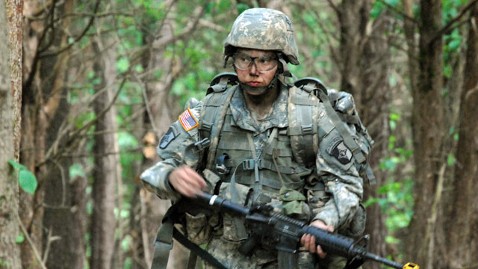Christmas is the one day of the year that Wal-Mart is closed, but for a group of four New Mexico burglars, it was the perfect time to stop in for some firearms.
Video surveillance cameras caught the masked burglars red-handed, stealing rifle after rifle. Police arrested the four men, and were able to recover the guns. But all too often, stolen weapons end up in the hands of criminals.
The New Mexico caper is part of a flood of gun thefts nationwide. And it's not only commercial gun dealers vulnerable to theft.
Guns are a top target for home burglars looking for something they can easily sell on the street.
An estimated 230,000 guns per year are stolen in home burglaries and property crimes, according to a study by the Department of Justice.
"Any burglar that goes in a house and finds guns, their eyes are going to light up," says former ATF Assistant Director Mike Bouchard. "That's the first thing they're going to take."
The statistics for commercial thefts show that nearly 25,000 guns per year are lost or stolen from gun dealers.
According to the Bureau of Alcohol Tobacco and Firearms (ATF), more than 4,000 gun stores and retailers have been targeted in the last three years, with 74,000 guns reported stolen or lost. And criminals will use any method possible to get their hands on some weapons, either for their own use, or to sell on the black market.
Minnesota Public Radio, Jeffrey Thompson/AP Photo
Obama on Gun Violence Measures: 'This Is Common Sense' Watch Video
Kansas Gun Shop Owner Reacts to Obama's Proposed Plan Watch Video
Recently, thieves have taken to using a stolen vehicle to ram down the front doors of a gun store. In North Charleston, S.C., for example, burglars smashed a stolen truck right through Guns and Gold Trading Post, stealing $4,500 worth of guns before making a quick getaway.
"Gun stores are like candy stores for criminals," says Mike Bouchard.
2012 was a record year for gun sales, with more than 19.5 million background checks run for gun purchases, up almost 20% from the previous year. But while legitimate sales skyrocket, huge numbers of illegal guns are hitting the streets.
According to the Justice Department, more than 1.4 million guns were stolen or lost between 2005 and 2010.
Former ATF Assistant Director Bouchard says crooks have easy access to cheap stolen guns on the street.
"If you talk to any criminal, they can find a gun within an hour or two. Cheaper guns that were stolen can be sold for $50. On the street, a typical good handgun will run you $200 to $300," Bouchard said.
Some thieves have even targeted gun shipments, stealing the weapons before they get to market.
Last November, for example, a rogue truck driver allegedly stole a shipment of 111 guns he was supposed to deliver from the Smith and Wesson factory in Springfield, Mass.
When police caught him, they recovered 28 of the stolen guns, but some had already been used in crimes.
When police arrested the alleged stick-up robber known as the Black Jacket Bandit, they found one of the stolen guns was allegedly used by him in a convenience store robbery within weeks of the delivery heist.
In November, more than 100 powerful AK-47s were stolen from a rail yard in Atlanta. The guns were in a box car containing more than 1,000 guns being shipped from an overseas manufacturer to a major U.S. distributor, authorities say.
A few of the weapons have been recovered, but police are deeply concerned about having scores of new assault rifles falling into the wrong hands.
Given all the gun thefts, police say it is critical for gun owners to secure their weapons in gun safes or locked cases. And authorities are urging gun retailers to fortify their buildings, to try to prevent "smash and grab" type robberies.










